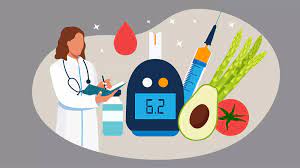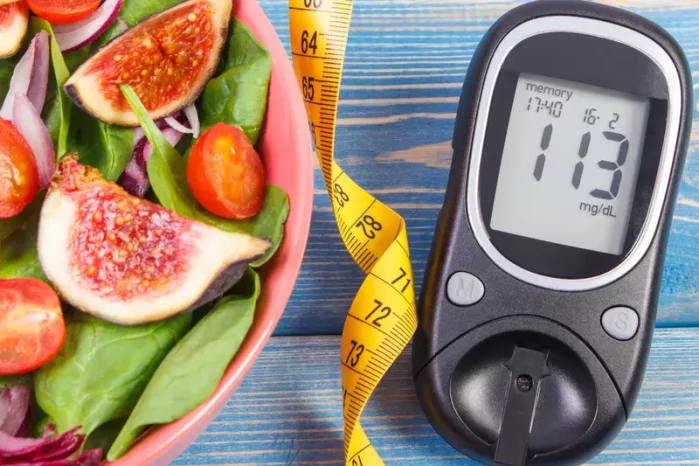Living with diabetes requires careful attention to diet and nutrition. For individuals managing this condition, understanding which foods to avoid is essential for maintaining stable blood sugar levels and overall health. In this guide, we’ll delve into various categories of foods to steer clear of, along with practical tips and healthier alternatives to support effective diabetes management.
High-Carbohydrate Foods: Understanding the Impact on Blood Sugar
Carbohydrates play a significant role in influencing blood sugar levels, making it crucial for diabetics to be mindful of their intake. High-carbohydrate foods can cause rapid spikes in blood glucose, posing challenges for glucose control. Examples of such foods include white bread, pastries, sugary drinks, and refined grains like white rice.
When consumed, these foods are quickly broken down into glucose, leading to a swift increase in blood sugar levels. For individuals with diabetes, this can result in hyperglycemia, potentially leading to long-term complications if not managed effectively. To mitigate these risks, it’s advisable to limit the consumption of high-carbohydrate foods and opt for healthier alternatives like whole grains, legumes, and vegetables, which provide a slower, more sustained release of glucose into the bloodstream.
Foods with Added Sugars: Recognizing Hidden Culprits
Added sugars are prevalent in many processed and packaged foods, contributing to a host of health issues, particularly for those with diabetes. Cakes, cookies, candies, and sweetened beverages are notorious for their high sugar content, leading to rapid spikes in blood glucose levels when consumed.
The excessive intake of added sugars not only disrupts blood sugar control but also increases the risk of obesity, cardiovascular disease, and other complications associated with diabetes. To minimize these risks, individuals with diabetes should prioritize whole, unprocessed foods and read food labels carefully to identify hidden sugars in products.
Saturated and Trans Fats: The Impact on Heart Health
While diabetes primarily affects blood sugar levels, it also increases the risk of cardiovascular complications. Saturated and trans fats, commonly found in butter, beef, processed snacks, and fried foods, can exacerbate these risks by raising cholesterol levels and contributing to heart disease.
Limiting the intake of foods high in saturated and trans fats is essential for maintaining heart health and reducing the risk of cardiovascular events in individuals with diabetes. Instead, focus on incorporating healthier fats such as those found in nuts, seeds, avocados, and oily fish, which have been shown to have protective effects on heart health.
Sodium-Rich Foods: Managing Blood Pressure
High sodium intake is associated with elevated blood pressure, a significant risk factor for cardiovascular disease and kidney complications, both of which are prevalent in individuals with diabetes. Processed foods, canned soups, deli meats, and fast food are common sources of excessive sodium in the diet.
Reducing sodium intake through mindful food choices and cooking methods is crucial for managing blood pressure and reducing the risk of complications in individuals with diabetes. Opt for fresh, whole foods and use herbs, spices, and other flavorings to enhance taste without relying on salt.
Alcohol Consumption: Understanding the Impact
Alcohol consumption can affect blood sugar levels and interact with diabetes medications, making it important for individuals with diabetes to approach alcohol consumption with caution. While moderate alcohol consumption may not significantly impact blood sugar levels in some individuals, excessive or binge drinking can lead to hypoglycemia (low blood sugar) and other complications.
It’s advisable for individuals with diabetes to limit alcohol intake and monitor blood sugar levels closely when consuming alcoholic beverages. Additionally, it’s essential to consult with healthcare professionals to understand how alcohol may interact with diabetes medications and affect overall health.
Portion Sizes: Practicing Moderation
Even healthy foods can impact blood sugar levels if consumed in excessive amounts. Portion control is key to managing blood sugar levels and preventing overeating. Paying attention to portion sizes and eating mindfully can help individuals with diabetes maintain stable blood sugar levels and achieve or maintain a healthy weight.
Healthy Alternatives: Making Smart Substitutions
Making healthier food choices doesn’t mean sacrificing taste or satisfaction. There are plenty of delicious alternatives to high-carb and sugary foods that can support diabetes management. Whole grains like quinoa, brown rice, and oats provide fiber and nutrients without causing rapid spikes in blood sugar.
Fresh fruit is a nutritious alternative to sugary desserts, offering natural sweetness along with vitamins, minerals, and fiber. Choosing lean proteins such as poultry, fish, tofu, and legumes can help balance blood sugar levels and promote satiety.
Reading Food Labels: Empowering Consumer Awareness
Understanding how to read food labels is essential for identifying hidden sugars, fats, and sodium in packaged foods. Pay attention to the ingredient list and nutrition facts panel, looking for terms like “sugar,” “high-fructose corn syrup,” “partially hydrogenated oils,” and “sodium” to make informed decisions about food choices.
Meal Planning: Setting the Stage for Success
Meal planning and preparation can simplify the process of making healthy food choices and support diabetes management goals. Start by creating a weekly meal plan that includes a balance of carbohydrates, protein, healthy fats, and fiber-rich foods. Prepare meals in advance to ensure you have nutritious options readily available and avoid relying on convenience foods that may be high in sugar, fat, or sodium.
Consultation with Healthcare Professionals: Personalized Support
Every individual with diabetes has unique dietary needs and health considerations. Consulting with healthcare professionals or registered dietitians can provide personalized guidance and support tailored to your specific health needs and diabetes management goals. They can offer valuable insights, recommend appropriate dietary modifications, and help you develop a sustainable approach to nutrition that supports your overall health and well-being.
Conclusion
In conclusion, navigating the diabetic diet requires careful attention to food choices and portion sizes to maintain stable blood sugar levels and support overall health. By avoiding high-carbohydrate foods, foods with added sugars, saturated and trans fats, sodium-rich foods, and excessive alcohol consumption, while prioritizing portion control, healthy alternatives, reading food labels, meal planning, and consulting with healthcare professionals, individuals with diabetes can take proactive steps towards optimal diabetes management and improved quality of life.
Related Topics



























